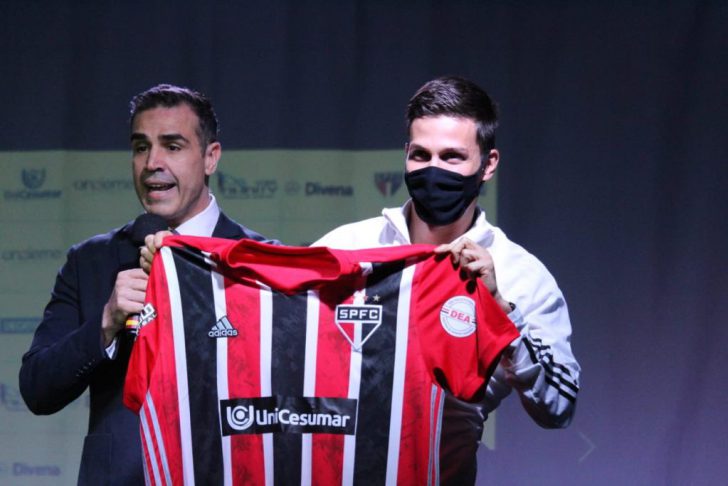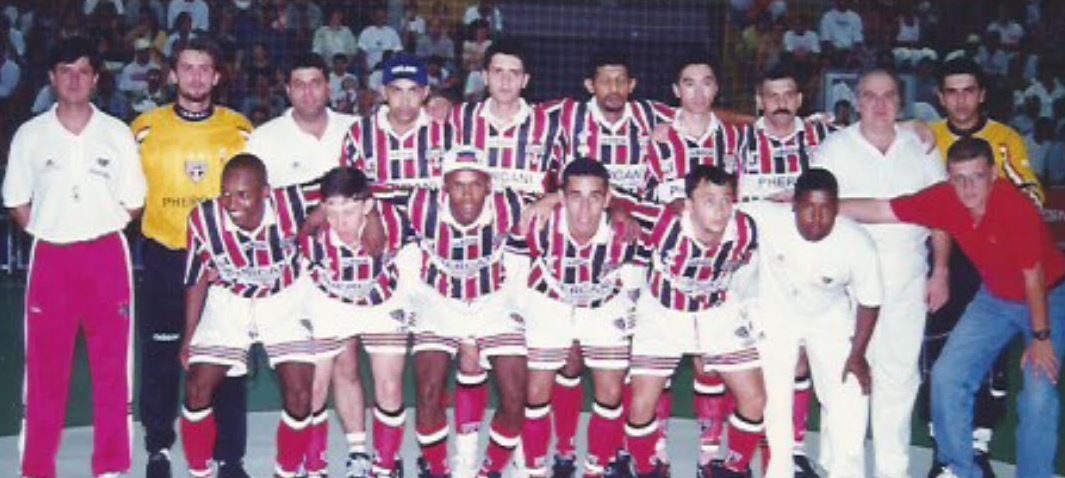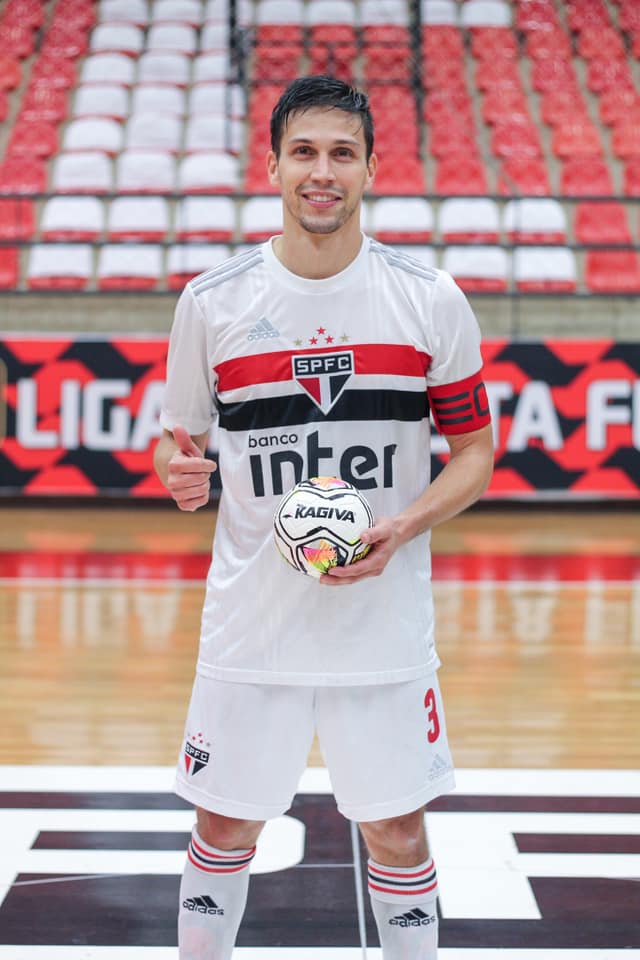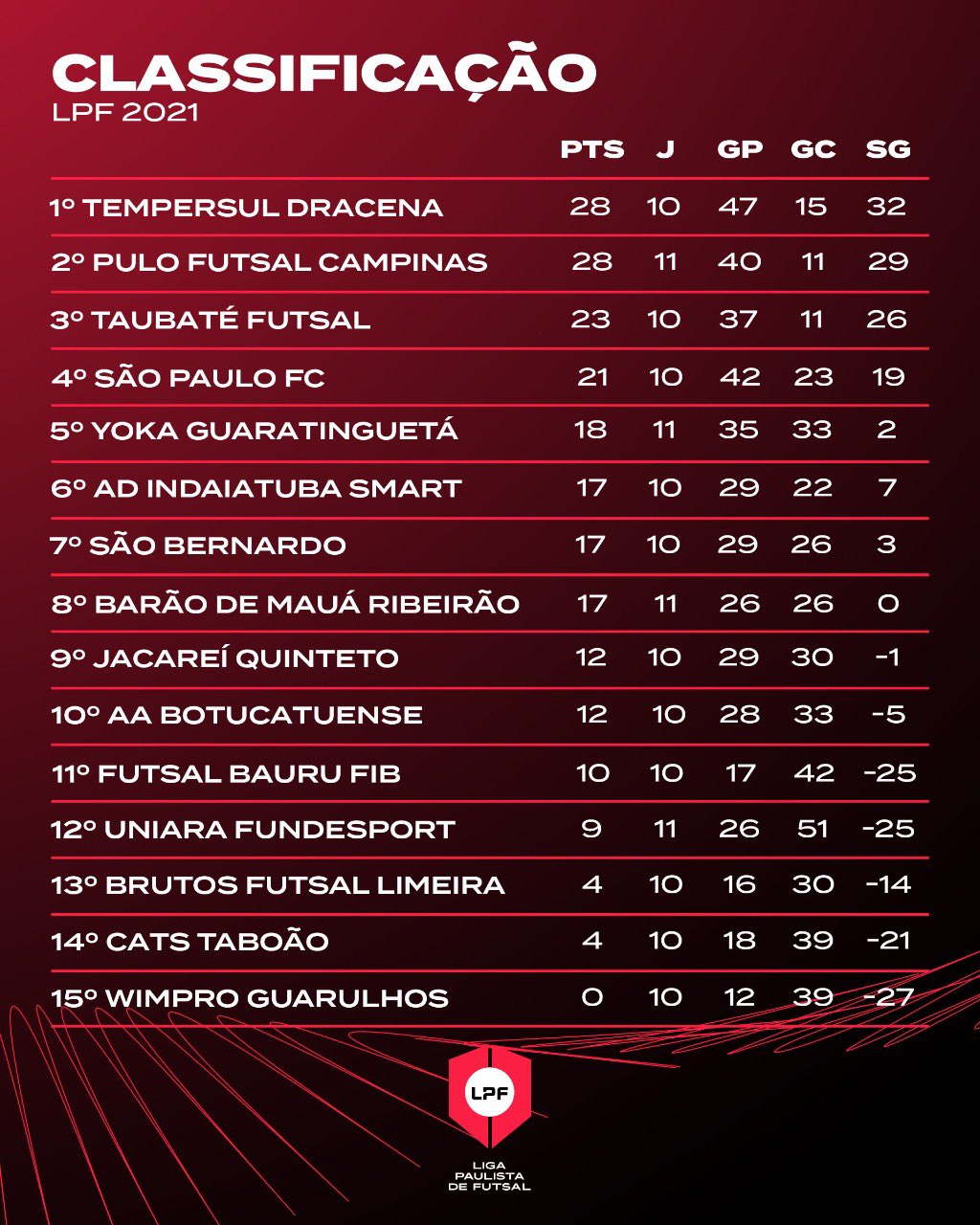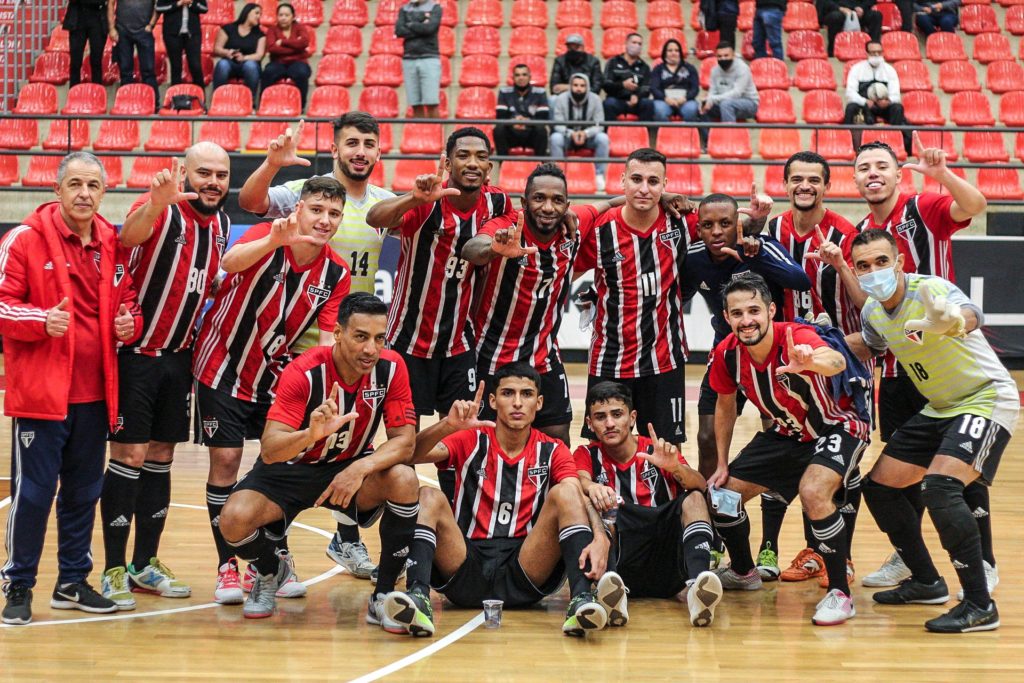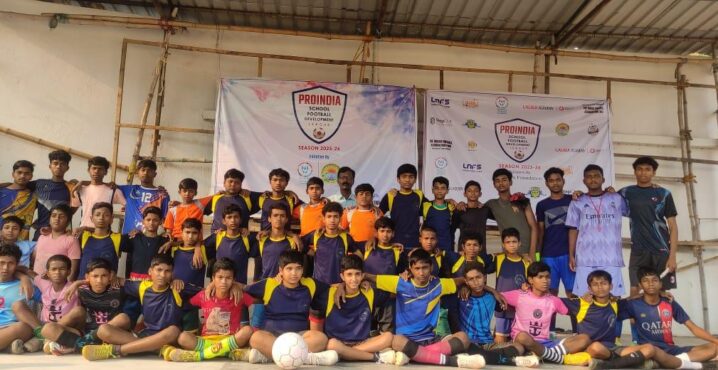Estimated reading time:12 minutes, 48 seconds
Futsal São Paulo FC currently play in the Liga Paulista de Futsal (a regional league) but the futsal section of this famous football club doesn’t intend to stay at this level for long as they aim to re-join the Liga Nacional de Futsal (LNF – National Futsal League) in the near future.
The club’s press officer, Luísa Vaz in a recent interview said:
“We shall start from scratch, and increasingly strengthen Futsal São Paulo, bringing pride to everyone in the Tricolor nation, and a future for our youth teams. Leaving a legacy for future generations.”
Futsal São Paulo has already been the São Paulo Futsal champions in 1998 and 1999, in addition to the semi-finalist of the LNF in 1999, when the club worked in partnership with EC Osasco.
The fans of São Paulo have been embracing other sports besides professional football. The success of their basketball team (champions in 2021) shows the possibility of a return for investors should they back the new venture in the Tricolor colours through futsal.
Furthermore, the support of the new sponsor makes it possible to dream of a return to the LNF and then, who knows, win titles. At this time, however, after years or uncertainty, the futsal section is back stronger, with a project that has great players such as Pula, top scorer at the 2008 World Cup for Russia, and Gabriel Lima, who was voted the 3rd best player in the world in 2014, and was captain of the Italian national futsal team for 6 years. In his list of previous clubs it includes Asti, El Pozo Murcia, Acqua e Sapone Calcioa a 5 and Chonburi Bluewave.
Futsal Focus got in contact with Gabriel Lima to find out more about the club’s ambitions for futsal in Brazil:
FF: What attracted you, and Pula to the Futsal São Paulo project?
GL: When I and my family decided to return to São Paulo to live, I was initially out of Futsal for one year and 8 months because I didn’t receive any offer from Magnus Futsal or Corinthians in the LNF. However, the São Paulo directors for futsal called and asked if I would be interested to help them restructure their futsal section within the club. The directors assured me I would be given the freedom to manage and rebuilt inside and out. There are two points to be made, firstly, this project gave me the opportunity to play for the team I love. I have been a São Paulo supporter all my life, the club is near my house, my family regularly goes to the club to enjoy watching the matches. My grandfather was a member of the club for many years. My decision to get involved relates with my family’s strong connection to the club, and the opportunity to manage a project which is very important to me.
In Pula’s case, I don’t know for sure, but Pula was out of futsal for over a year. He is older than me, he is 40 whereas I am 34, but as you can imagine, São Paulo is a huge brand, not just in Brazil but around the world. The club give him the opportunity to continue playing, which he loves, and to contribute to the project.
FF: Why has São Paulo decided to venture back into Brazilian Futsal and aiming for the LNF? What has changed in the market to attract their interest?
GL: 2 years ago, São Paulo lost their LNF club license/ membership. Currently, the LNF doesn’t have a second division so there is no relegation, and you must have a league license/ franchise membership like in the NBA. São Paulo went for many years not playing in the league so they sold their license to another club so they could compete. And, the league rules forces any club that doesn’t play for four years to lose their license anyway. So when São Paulo called me they told me that the project’s goal was to return to the LNF. The LNF is a very competitive league, whereas some leagues have a dominant few who can win their league, the LNF is different. Up to 10 clubs or more have a chance of winning the league title. We couldn’t just go back to the LNF and put a team together, we didn’t have anything in place, we needed to rebuild a strong foundation and the club’s structure. The club was also on the verge of losing their Liga Paulista de Futsal (LPF) license but the decision was made to start our rebuilt in this regional league. It has been 6 months since we started working on this. I started the project in the middle of April this year, and the league was due to start 3 weeks later. We didn’t have a first team to play our first game, only an U20 team. We built everything from scratch, and now we have a good project, and we are looking for an investor. Our senior team is in the quarter-finals of the LPF, and the U20 team is playing the quarter-finals of the Paulista championship.
In relation to the market, futsal is gaining more momentum year on year, when you see the interest in Magnus Futsal’s documentary series with Fred, more young people are starting become aware of the opportunities futsal can offer. Futsal is loved in Brazil, all across the country people play our sport, participation is bigger than football, the future is very bright for our sport as the industry builds, especially at the professional level. For São Paulo, there was no major market change to reignite an interest in futsal, the interest was always there for us. Futsal is a respected sport within our club, and a popular sport in our locality. São Paulo wants to give our supporters who love futsal the opportunity to support a São Paulo futsal team, and give futsal players the opportunity to pull on the Tricolor and compete for the club, the club they love.
FF: What is the club’s plans to grow over the next 5 years? And how are Unicesumar supporting it as your major sponsor?
GL: I have thrown myself into this project, and we are now into the first year of my 5-year plan. Our goal is to return to the LNF in 2023 so two years from now. I don’t know if this will be possible, there is a big gap between where we are, and where we need to be to if we are to get the LNF license again. We must secure investors and additional sponsors to put in place the needed club structures to get LNF approval. Yet, even with the club structures in place, we won’t approach the LNF until we develop a stronger senior team (players and coaching staff) which can compete at the professional level. Currently, we have a team recruited with no budget. The aim for next year is to increase our recruitment options but we need to have a salary structure in place which can attract professional players, currently our players are not paid. This is why it is vital for us to attract investors and sponsors, Unicesumar is our current biggest sponsor but they are an educational institution. The organisation is not providing us with a huge amount of money to invest in the club. Unicesumar is mainly providing the players in the U20 and senior team with academic courses so they can play for São Paulo whilst studying and getting qualifications. They did provide us with some money to help with the club development. You may be wondering why we would need to secure finances when we are a part of a professional football club. We have their brand and assistance to start, but we must make this section of the club a success ourselves. The basketball section had to do the same when they started, and they are now one of the biggest basketball clubs in Brazil. By advancing the futsal section of the club, and showing São Paulo their is financial interest in our plans, only then will we secure increased support from them.
FF: What kind of support and interest in the futsal section are you getting from São Paulo fans? Especially when entry to the team’s last game was for free!
GL: Twitter is our main platform to engage with our fans, and I am very active across our social media platforms. Growing our social media is important to reach out to the 18 million São Paulo supporters across Brazil and gain their support for the futsal section. São Paulo is very special because the people here don’t just support the football club, they support our city, they are extremely proud to live in or come from here. Our fans don’t just support the football section, they look to support any sport wearing the Tricolor colours and we are doing a great job so far engaging with them. Recently, we did an event within the club with a company called Premier Futsal Experience. We invited fans and social media influencers to come inside the club. For many of these fans, it was their first time to ever be inside the club, and futsal made that possible for them. Covid infection numbers have begun to decrease so for the first time we could welcome fans to watch us play. There wasn’t a huge number in attendance but it was still a good number of fans due to starting all over again. We must rebuild a connection with our fans and events like this help to start the process. Plus, fan engagement is an essential part of our 5-year plan, to attract more people, and build a larger support so they can help us to get back to the LNF.
FF: In Brazil, there are 11 million participants with huge market potential. Recently, Magnus Futsal’s documentary series with Fred was watched by over 30 million viewers. What in your opinion are the problems facing Brazilian futsal that the industry must overcome to reach its commercial potential?
GL: We are discussing this a lot at São Paulo. We are a new project and when you are an old project it is sometimes hard to change how you communicate with your target market. But, we have had the chance to look at this, and how other clubs are doing it. We are already trying to change how futsal is presented, we want our communications to be more dynamic, more engaging and we have started this process already. We streamed our first match live, and worked with a film company called Deepinshoot to launch some video clips of the club to show our marketing in a more modern way, so we can use this to attract fans and sell our goals to people who will potentially want to work with us. Futsal on TV is not presented well, you have to go to the court/ stadium, at this time, to really experience the sport, but we want to change this, we want to make the sport attractive on TV as well. Magnus Futsal for me is the best club when it comes to the marketing and promotion of futsal across social media, but even though many people watched the series with Fred, it was not a Magnus series, it was a Fred series, the focus was on engaging his audience. We want to do this differently, our main focus is not using me or Pula to promote our sport and club, of course, we use our profiles to assist with the promotion of Futsal São Paulo to a certain extend, but the main objective is to promote the brand, and the futsal section of our club. I have many ideas from my experience abroad at club and the international level, which we are trying to incorporate into our strategies, though it’s not easy, we want to do more engaging content and increase interest in Futsal São Paulo FC.
FF: A separate question I have concerns Brazilian futsal and the national team. After decades of Brazilian futsal, and one of the biggest professional futsal leagues in the world. Why do you think the Brazilian national futsal team doesn’t attract a large travelling support?
GL: This is a difficult question when it comes to our national team. In my opinion, futsal is a strong product but the sport and our national team is not promoted to the public in the right way here in Brazil. At the international level, FIFA is even worse in comparison to UEFA who promote the sport much better. FIFA doesn’t care about Futsal; I have always believed this. I have played in two world cups, and I can tell you that the UEFA Futsal EURO is 100% better than a FIFA Futsal World Cup. Even when the World Cup was in Colombia, FIFA didn’t market the sport enough and in a commercial attractive way that would make fans want to go. Here in Brazil, we are slowly doing better than before, but we need to continue working on this and improving. When it comes to FIFA, they need to invest more in the marketing and promotion of our sport. Think about it, why would you buy a football world cup ticket? Because of the marketing and promotion that sales a fan experience, not just because of the game. This is the same for a UEFA Champions League ticket, you will buy one because of the experience. FIFA must include an experience into their event alongside the games, people need to feel that they cannot miss the competition, that they must be there, and be a part of the show. I don’t think FIFA does this at all for the marketing and promotion of the FIFA Futsal World Cup.
Futsal Focus supports the Donate4Dáithí campaign
To follow the Donate4Dáithí campaign, you can visit their website here: www.donate4daithi.org or on Facebook at: https://www.facebook.com/Donate4Daithi you can also donate money to their campaign at: https://www.justgiving.com/crowdfunding/donate4daithi
You can read more articles about domestic futsal by going to the top navigation bar or click here
If you like this article and would like to keep updated on Futsal news, developments, etc then you can now follow Futsal Focus via Google News by following our page which will send you an alert as soon as we publish an article so please click here and follow us on Google.
You can also keep updated on Futsal news, developments, etc then please submit your email below in the Subscribe to Futsal Focus option.
Follow Futsal Focus by clicking on Facebook, Twitter, or Instagram or on the social media buttons on the website.

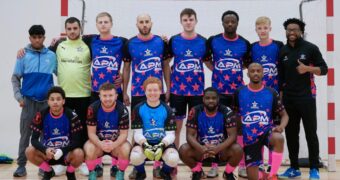


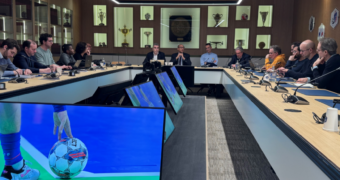


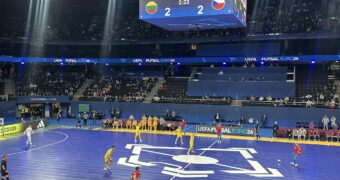
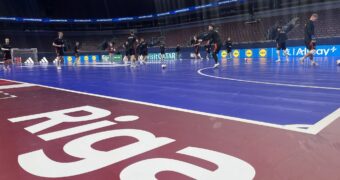
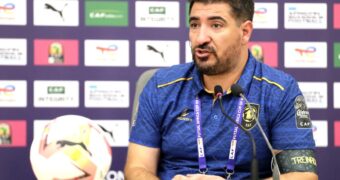

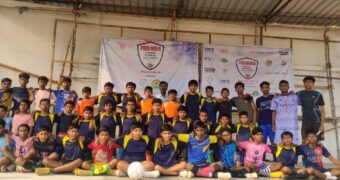




![Validate my RSS feed [Valid RSS]](https://www.futsalfocus.net/wp-content/uploads/2020/01/valid-rss-rogers.png)

